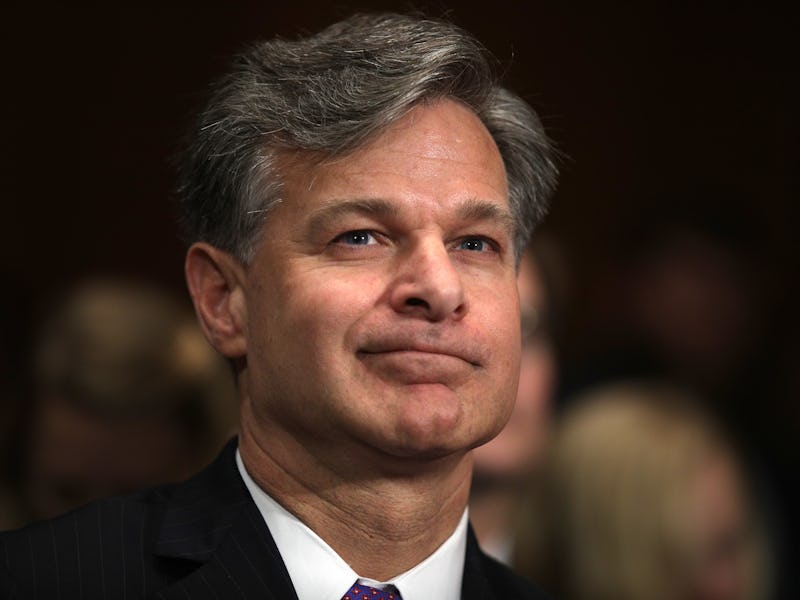Who is Christopher A. Wray? The FBI Nominee Who Just Testified
"My loyalty is to the Constitution"

President Donald Trump described his nominee to lead the FBI, Christopher Wray, as “a man with impeccable credentials.” On Wednesday, the Senate Judiciary Committee put those credentials to the test during Wray’s confirmation hearing.
Notably, Wray wouldn’t agree with Trump’s “witch hunt” characterization of the ongoing investigation into the president’s ties with the Russian government, interference in the presidential election. Wray also told Senators that he would keep the FBI independent:
“I will never allow the FBI’s work to be driven by anything other than the facts, the law and the impartial pursuit of justice. Period,” he said. Later, he added:
“My loyalty is to the Constitution, the rule of law and to the mission of the FBI. No one asked me for any kind of loyalty oath at any point during this process. I sure as heck didn’t offer one.”
Wray has a diverse range of experience, heading up the Enron Task Force, aiding the governmental response to the September 11 attacks, and representing Governor Chris Christie during the “bridgegate” investigation.
“Any time a major corporation is under investigation, you expect to see [Wray] present,” Chambers USA said in 2014.
Directors of the FBI are appointed by the president to serve for a single 10-year term. The nomination has to be approved by the Senate. While in position, the president has the power to fire the director. Andrew McCabe has been serving as acting director since May 9, after Trump fired previous director James Comey.
Born in 1967, Wray graduated from Yale University in 1989 and Yale Law School in 1992. After graduating, he began clerking for Judge J. Michael Luttig of the U.S. Court of Appeals for the Fourth Circuit.
Wray started working at the Atlanta office of law firm King & Spalding in 1993. In 1997, he left the position to take up a job in the United States Attorney’s office for the northern district of Georgia. He then moved to the federal Department of Justice as associate deputy attorney general.
In 2003, President Bush nominated Wray to head up the criminal division, an appointment the Senate unanimously confirmed. In this position, he held investigations in a wide range of federal law areas, including corruption, fraud, and even aid in coordinating the department’s response to the September 11 attacks. Wray also oversaw the Enron Task Force, one of the most high-profile, white-collar investigations in the FBI’s history.
“The Enron Task Force’s efforts resulted in the convictions of nearly all of Enron’s executive management team,” Michael E. Anderson, who led the FBI’s Enron Task Force in Houston, said in a previous statement. “The task force represented a model task force—the participating agencies selflessly and effectively worked together in accomplishing significant results. The case demonstrated to Wall Street and the business community that they will be held accountable.”
He left that position in 2005 and returned to King & Spalding as a litigation partner. There, he’s specialized in white collar and internal investigations, representing numerous tech firms and Fortune 500 companies. Wray represented New Jersey Governor Chris Christie during the George Washington Bridge toll lane closing investigation.
Tellingly, Wray took care to let the Senators know he would not listen to the president if he asked — as Trump did of Comey — to stop an investigation.
“First, I would try to talk him out of it,” Wray told the committee. “If that failed, I would resign.”